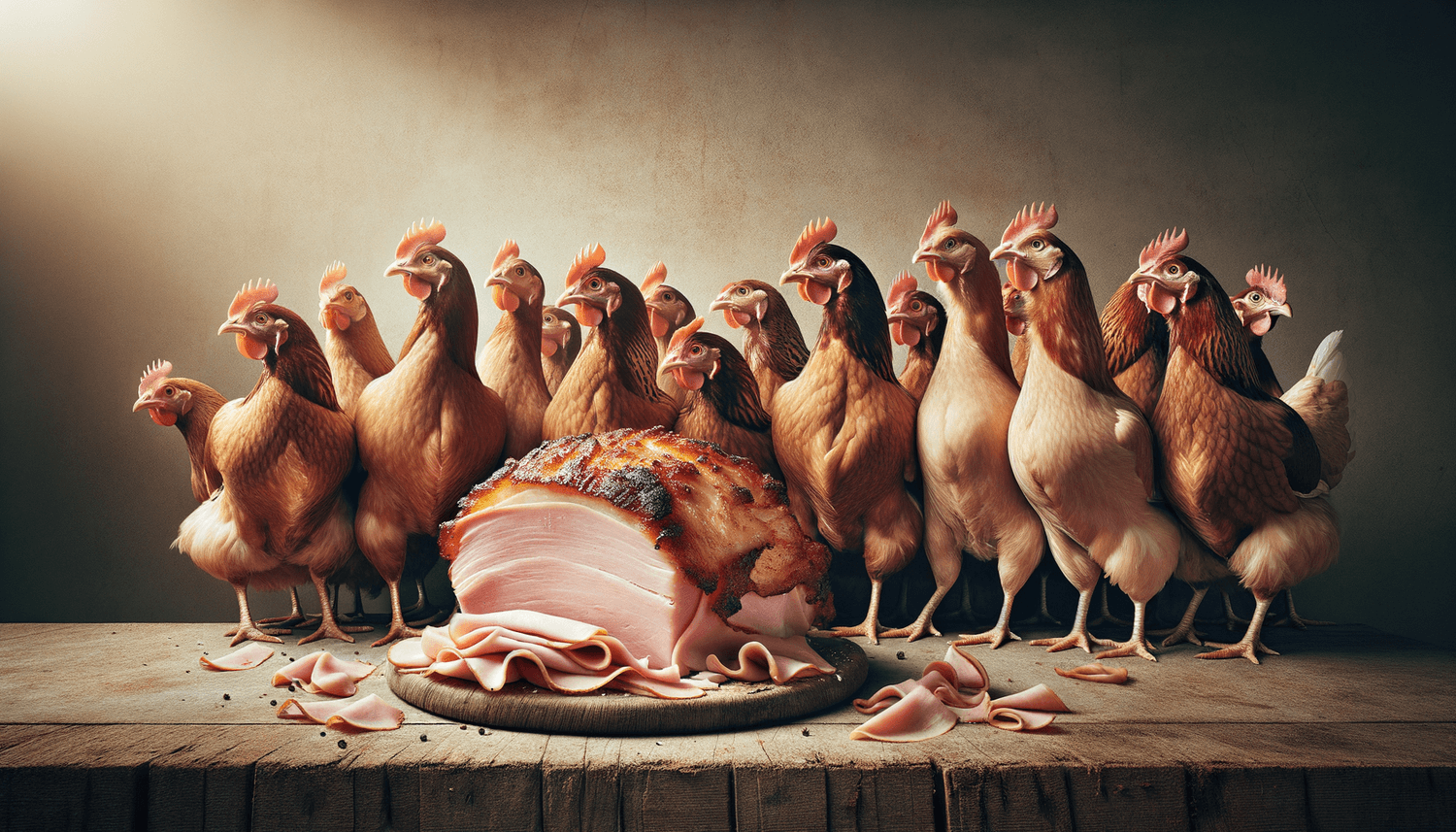No, chickens should not eat cooked ham. Cooked ham is a processed meat that contains high levels of salt and preservatives, which are harmful to chickens. Their digestive systems are not equipped to handle large quantities of sodium and additives found in cooked ham, and feeding it to them can lead to health complications such as salt poisoning, obesity, and increased thirst, which can cause stress on their kidneys.
Quick Summary
- Chickens should not eat cooked ham.
- Cooked ham contains high levels of salt and preservatives harmful to chickens.
- The risks outweigh any potential benefits; it can cause salt poisoning, obesity, and kidney stress.
- Chickens should be fed a balanced diet appropriate for their species instead of processed human foods.
Overview of Cooked Ham
Cooked ham is a popular processed meat derived from the hind leg of a pig. It is often preserved through smoking, curing, or salting, and includes additives like nitrates, which contribute to its flavor, color, and shelf life. Cooked ham is rich in protein but is also high in sodium and fat, which are not suitable for chickens.
Benefits and Risks of Cooked Ham for Chickens
While cooked ham does provide some protein, the risks to chickens far outweigh any potential benefits. The high sodium content can lead to serious health issues, including salt toxicity and dehydration. Furthermore, the fat content in ham can contribute to obesity in chickens, which is linked to various health problems and reduces their life expectancy.
Feeding Guidelines
As cooked ham is not suitable for chickens, no feeding guidelines are provided for its consumption. Chickens should be given a diet consisting of grains, vegetables, fruits, and a good quality commercial feed enriched with all the necessary nutrients for a healthy and balanced avian diet.
Alternatives
Instead of cooked ham, owners can feed their chickens healthier alternatives like small amounts of cooked lean meats, grains, vegetables, and occasional fruits. These provide the necessary nutrients without the health risks associated with processed meats.
Expert Opinions
Poultry nutritionists and veterinarians agree that feeding chickens processed meats like cooked ham poses health risks. Instead, they recommend a balanced diet specifically formulated for poultry, which ensures the birds receive all necessary nutrients for optimal health and productivity.
Frequently Asked Questions
After reading the post about whether chickens can eat cooked ham, readers may have some lingering questions. Here are the answers to some common concerns.
Are there any circumstances where chickens can eat cooked ham safely?
No, there are no safe circumstances under which chickens should eat cooked ham due to its high salt and preservative content.
What are the symptoms of salt poisoning in chickens?
Symptoms of salt poisoning in chickens include increased thirst, watery droppings, weakness, disorientation, and potentially, convulsions and death.
What should I do if my chicken accidentally eats cooked ham?
If a chicken accidentally consumes cooked ham, it’s essential to monitor it closely for any signs of distress and ensure it has access to plenty of fresh water. Consult a veterinarian if any concerning symptoms appear.

















